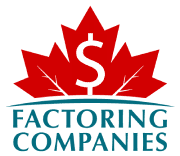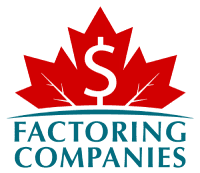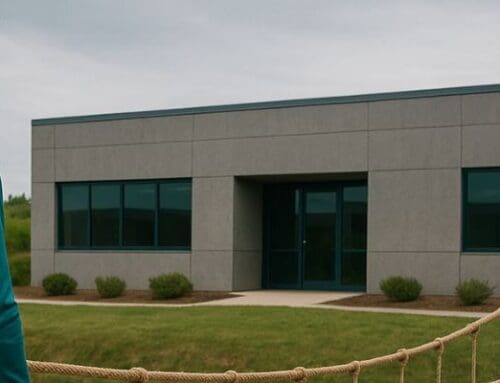
Trying to get a handle on what your factoring discount rate will be? The answer isn’t always straightforward, as there are many variables that go into the calculation. In this guide, we’ll explore how factoring rates work and provide some general guidelines, so it’s easier for you to know what to expect.
What is a Factoring Discount Rate and Why Does it Matter?
In a typical factoring agreement, your business submits an invoice and receives a factoring advance worth most of the invoice’s value right away. The factoring company then waits for payment from your customer. When the balance is collected, the factoring company sends you the remaining balance, minus a small fee for the service.
That fee is usually expressed as a small percentage of the invoice value and is known as the factoring discount rate. It’s typically between one and five percent of the invoice value.
Your Discount Rate Affects Profitability, Cash Flow, and More
Your factoring discount rate affects how much of your invoice value you actually receive and, in turn, how efficiently you can cover expenses, invest in new opportunities, or manage seasonal fluctuations. Because of this, it impacts:
- Cash Flow Predictability: Factoring turns outstanding invoices into reliable, near-immediate cash flow, which can be essential for businesses waiting thirty to ninety days for customers to pay.
- Business Flexibility: Access to steady cash flow allows you to take on larger contracts, purchase supplies at better rates, and pay employees or contractors on time.
- Credit Management Support: Factoring companies often provide credit checks and monitoring, reducing your risk of taking on customers who pay late or default. The cost of these services is built into the discount rate.
- Growth Enablement: By freeing up funds tied to receivables, factoring can help you expand without taking on additional debt or diluting ownership.
Every Factoring Company Will Use a Different Factoring Rate Calculation
When you’re calculating the cost of factoring, you’ll find many different methods. We offer an instant invoice factoring calculator that can help you ballpark the costs. It uses a simplified formula that involves the value of the invoice(s) you plan to factor and the total number of days the balance is expected to be outstanding.
Factors That Impact Your Factoring Discount Rate
Your factoring discount rate reflects how much risk and work the factoring company takes on when advancing cash for your invoices. Several variables come into play, and understanding them helps you make sense of why one business might pay a slightly higher rate than another. The main factors that influence your rate are covered below.
Customer Creditworthiness
Factoring companies evaluate the payment reliability of your customers, not just your business. If your clients have strong credit histories and consistent payment patterns, your rate will generally be lower because the factoring company assumes less risk.
Invoice Volume and Size
Larger or more frequent invoice submissions often qualify for better rates. A higher volume spreads the factoring company’s administrative costs over more transactions, which can reduce your effective cost.
Industry Risk Level
Some industries, such as construction or oil and gas, are considered higher risk due to longer payment cycles or a greater chance of disputes. In these cases, the factoring company may charge a slightly higher rate to offset that uncertainty.

Advance Rate
The advance rate is the percentage of your invoice value you receive upfront. The higher the advance, the more risk the factoring company carries, which can result in a higher discount rate.
Recourse Versus Non-Recourse Factoring
In a recourse arrangement, your business is responsible for unpaid invoices, which lowers the factoring company’s risk and often your rate. In non-recourse factoring, the factoring company absorbs the loss if your customer does not pay, so the rate is typically higher.
Invoice Payment Terms
The longer it takes your customers to pay, the higher the potential cost. Factoring companies earn revenue over time, so a 90-day term will generally carry a higher discount rate than a 30-day term.
Overall Relationship and History
Businesses that maintain consistent communication, submit clean invoices, and have a history of reliable customers tend to see improved rates over time.
How Factoring Companies Assess Your Business for Rate Determination
As mentioned earlier, your discount rate is shaped by risk and reliability. While the credit strength of your customers plays a big part, factoring companies also look closely at your own business profile, including how it operates, how it manages clients, and how long it has been in business. These insights help determine the overall stability of your accounts receivable and the likelihood that invoices will be paid smoothly.
Business History and Stability
A factoring company wants to understand your story. If you have several years of consistent operations, a steady customer base, and a track record of on-time payments, that history signals reliability and may result in a more favourable rate. Start-ups can still qualify for factoring, but since they have less financial history to reference, their initial rate might be slightly higher until patterns of performance are established.
Contract Terms with Your Customers
The terms you agree to with your customers directly influence how your invoices are assessed. If your contracts include clear payment timelines, strong dispute resolution clauses, and proof of delivery requirements, those details reduce risk for the factoring company. Shorter payment terms and well-documented agreements make your invoices more predictable, and that predictability helps lower your cost.
Billing and Documentation Practices
- Invoice Accuracy: Consistent, error-free invoicing signals professionalism and lowers the likelihood of payment delays.
- Supporting Documents: Providing purchase orders, signed delivery receipts, or timesheets adds confidence that each invoice is legitimate and collectible.
- Customer Communication: If your business maintains good relationships and open communication with clients, factoring companies see that as a sign of stability.
Concentration of Clients
If most of your receivables come from one or two large clients, that can increase perceived risk. Factoring companies prefer to see a balanced client portfolio because it reduces exposure if a single customer delays payment. Over time, diversifying your client base can help improve your rate.
Business Sector and Economic Outlook
As mentioned previously, your industry matters, but factoring companies also consider economic conditions within that sector. For example, if demand for freight transport is high and invoice turnaround times are improving, a trucking company might see more favourable pricing than it would during a slow season.
How to Qualify for Lower Factoring Rates

As mentioned earlier, your factoring discount rate reflects the level of risk and administrative work involved in purchasing your invoices. The good news is that several aspects of that equation are within your control. By building a stronger business profile and improving internal systems, you can often qualify for a lower rate over time.
Strengthen Customer Quality and Diversification
Factoring companies price based on the reliability of your customers’ payments. The more predictable your receivables are, the better your rate tends to be.
- Work with Creditworthy Customers: Try to build relationships with established clients who have verifiable payment histories. Many factoring companies will even help you assess potential customers before you extend credit.
- Avoid Over-Concentration: If one client accounts for most of your receivables, your perceived risk increases. Diversifying across several stable clients can help you negotiate a better rate.
Maintain Strong Internal Practices
Nearly 40 percent of invoices have errors, according to Ascend. These can lead to disputes and slow down the payment process. Conversely, a clean and consistent billing process signals professionalism and lowers risk.
- Invoice Accuracy and Documentation: Ensure every invoice includes proper references, proof of service or delivery, and customer confirmation. Errors or missing documentation can slow payment and affect your rate.
- Prompt Submission: Send invoices to your factoring partner as soon as work is completed or goods are delivered. Faster turnover improves predictability and may make your account more appealing.
- Efficient Dispute Resolution: Handle any customer issues quickly and transparently. A short resolution window demonstrates control over your receivables.
Build a Positive Factoring Relationship
Your partnership with a factoring company can evolve over time. Once they see consistent, reliable performance, many will revisit your pricing.
- Track Record of Reliability: Demonstrating that your customers pay on time and your invoices rarely have issues can earn you more favourable terms at renewal.
- Open Communication: Keep your factoring partner informed about major contracts, new clients, or changes in business volume. Transparency builds trust and can help in rate discussions.
Increase Volume or Commit to a Longer Agreement
Volume and consistency can influence pricing. Factoring companies often reward predictability.
- Higher Volume: If you plan to factor more invoices, negotiate a volume-based discount. The cost per invoice often decreases when administrative effort is spread over more transactions.
- Longer-Term Relationship: Some factoring companies offer lower rates for multi-month or annual agreements because it guarantees steady business.
Keep Your Financials in Good Shape
Even though factoring relies primarily on customer credit, your business health still matters.
- Sound Financial Management: Maintaining positive cash flow, reasonable debt levels, and organized books shows that your business is stable.
- Clear Growth Strategy: Factoring companies prefer clients with sustainable growth plans because it signals long-term partnership potential.
Comparing Factoring Companies to Find the Best Rate
Once you understand what shapes your factoring discount rate, the next step is to compare factoring companies carefully. Rates can vary widely between providers, and the lowest advertised number does not always mean the best value. The right partner will be transparent, consistent, and aligned with your business goals.
Understanding Rate Variations Between Providers During Your Factoring Rate Comparison
Each factoring company has its own pricing model and risk assessment process. Even two firms offering what appears to be the same service can quote different rates for the same invoices. A few reasons behind this include:
- Funding Source and Structure: Some factoring companies use private capital, while others rely on banks or investors. Those with more affordable funding sources can pass the savings on to you.
- Service Scope: A company that provides additional services, such as credit management or collection support, may charge slightly more, but these inclusions can save your business time and reduce losses.
- Operational Efficiency: Well-established factoring firms often have streamlined systems that reduce administrative overhead. Those savings can translate into more competitive rates.
Hidden Fees to Watch for in Factoring Contracts
Most businesses don’t need to worry about “hidden fees” in factoring agreements because your contract should spell them out clearly. However, sometimes there are special clauses in factoring contracts that people don’t notice until they’re actively factoring. You’re more likely to experience this if you are offered an unusually low factoring discount rate, as the factoring company may try to recoup those losses for additional fees that apply in different situations. Common add-ons to look for include:
- Minimum Volume Fees: Some contracts require you to factor a certain amount each month or pay a penalty if you fall short.
- Wire Transfer or Payment Fees: Factoring companies may charge small amounts for same-day payments or international transfers.
- Credit Check or Due Diligence Fees: These cover the factoring company’s cost to verify your customers’ creditworthiness.
- Early Termination Fees: If you end a long-term contract before the agreed period, you could face additional costs.
Negotiating Factoring Fees for Your Business to Secure the Best Rates
Once you understand how your rate is calculated and what fees are included, you are in a stronger position to negotiate. Factoring is flexible by nature, and many providers are willing to tailor terms to earn your business.
- Build a Strong Relationship: Consistency matters. As mentioned earlier, businesses that maintain open communication and provide clean, verifiable invoices often earn rate reductions over time.
- Demonstrate Low Risk: If you can show that your customers pay promptly and your operations are stable, a factoring company is more likely to offer better pricing.
- Compare More Than Rates: Consider advance percentages, funding timelines, and recourse terms alongside the discount rate. The best deal is the one that delivers the most value and reliability, not necessarily the lowest cost.
Find the Best Factoring Companies for Low Rates
If you’re trying to keep your costs low, it’s essential to remember that your factoring discount rate is only one part of the cost equation. Although it makes up for the bulk of the cost, you may still see additional charges for individual services. Moreover, factoring companies with the lowest discount rates often make it happen by cutting corners, such as shortchanging you in service or providing reduced support.
Because of this, we focus on factoring companies that price their services competitively while ensuring you still receive strong service. If you’d like to be matched with a company that’s known for providing good service and fair rates, or you simply want to get a better idea of what factoring will cost, request a complimentary rate quote.
Factoring Discount Rate FAQs
What is the discount charge for factoring?
The discount charge for factoring is the total cost deducted from your invoice amount to cover the factoring company’s services. It compensates the provider for funding your invoices early, assuming credit risk, and managing collections. The charge is typically based on the invoice value and payment term length.
What percentage does a factoring company take?
Factoring companies generally charge between one and five percent of the invoice value, depending on risk, customer payment timelines, and industry type. Businesses with strong customer credit and consistent payment histories tend to qualify for lower rates, while those with longer payment terms or higher risk may pay slightly more.
What is the rate of cost-effective factoring?
Cost-effective factoring typically falls between one and three percent of the invoice value. The best rates balance affordability with service quality, ensuring quick funding, reliable support, and transparent terms without hidden fees. A “low” rate that limits flexibility or adds extra charges may end up costing more overall.
How do recourse vs. non-recourse factoring rates differ?
Recourse factoring usually offers lower rates because your business remains responsible if a customer does not pay. Non-recourse factoring, which transfers that risk to the factoring company, tends to have slightly higher rates to cover potential losses from customer non-payment or insolvency.
How are invoice volume and factoring costs linked?
Higher invoice volumes often lead to lower factoring rates. When you submit invoices regularly or in larger amounts, the factoring company’s administrative costs per transaction decrease. That efficiency is often reflected in better pricing, making consistent invoice submissions an effective way to reduce your overall factoring costs.
How are business financial stability and factoring rates connected?
Financially stable businesses often qualify for lower factoring rates. A steady cash flow, reliable customer base, and accurate recordkeeping demonstrate reduced risk for the factoring company. As trust builds through consistent performance, your provider may offer better terms or rate reductions over time.
What’s the definition of “factoring discount rate?”
Factoring Discount Rate Meaning: The factoring discount rate is the fee charged by a factoring company for advancing cash before your customers pay their invoices. It represents the cost of immediate access to working capital and includes both the time value of money and the factoring company’s risk.
What is the customer credit impact on factoring?
Customer credit plays a major role in determining your factoring rate. When your customers have strong credit and pay on time, the factoring company assumes less risk, which usually leads to lower rates. Weak customer credit or payment delays can raise the cost of factoring.
What is the impact of discount rates on cash flow?
Factoring discount rates influence how much cash you receive upfront. A lower rate leaves more working capital available for operations, while a higher rate slightly reduces proceeds. Regardless, factoring provides faster cash flow compared to waiting for customers to pay on traditional invoice terms.
What do I need to know about factoring contract terms and pricing before I sign?
Before signing, review all terms carefully. Look for minimum volume requirements, termination fees, and extra costs like wire transfers or credit checks. Ensure the agreement outlines your advance rate, factoring fees, and payment timelines clearly. Transparency is key to securing a fair, predictable partnership.
What happens during the factoring company underwriting process?
During underwriting, the factoring company reviews your business operations, financial history, and customer payment behaviour. They verify invoices, assess customer credit, and evaluate contract terms to gauge risk. The findings help determine your discount rate, funding limit, and other terms before the agreement is finalized.

About Factoring Companies Canada
Related Insights
Get an instant factoring estimate
Factoring results estimation is based on the total dollar value of your invoices.
The actual rates may differ.
CLAIM YOUR FREE FACTORING QUOTE TODAY!
PREFER TO TALK?
You can reach us at
1-866-477-1778
Get an instant factoring estimate
Factoring results estimation is based on the total dollar value of your invoices.
The actual rates may differ.
CLAIM YOUR FREE FACTORING QUOTE TODAY!
PREFER TO TALK? You can reach us at 1-866-477-1778











